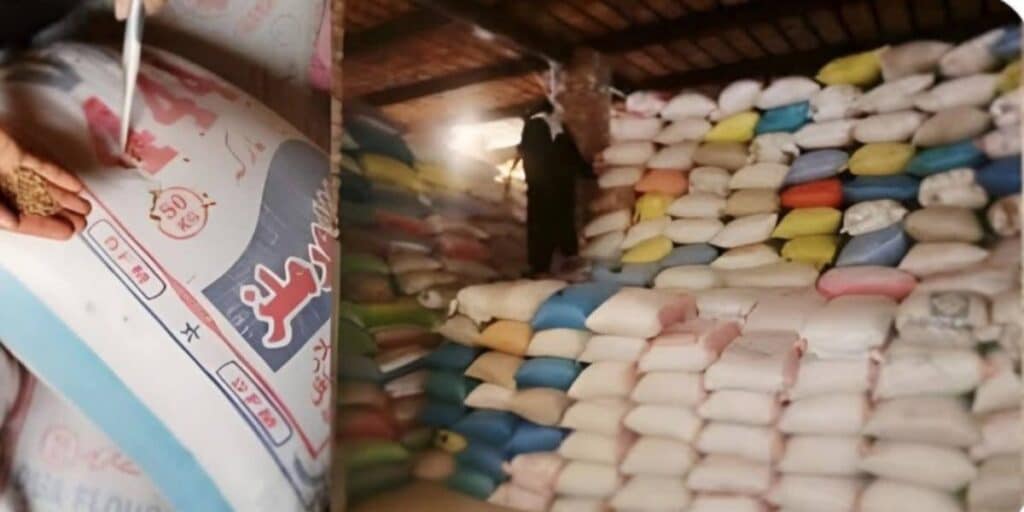SIBI: The Sibi district administration, led by Assistant Commissioner Mansoor Ali Shah, launched a major operation against wheat hoarding.
During the crackdown, thousands of maunds of wheat were seized and three large warehouses were sealed.
in Balochistan News Updates, heavy fines were imposed on those involved in the illegal stockpiling to prevent the creation of an artificial shortage of essential commodities.
Officials also announced the formation of a committee to distribute the confiscated wheat to the public at government-approved prices, ensuring stable supply and safeguarding consumer interests.
For years, Balochistan’s wheat supply chain has faced persistent allegations of mismanagement and graft.
Reports have highlighted repeated cases of artificial shortages created through hoarding, unauthorized sales of government wheat stocks, and falsified records in procurement and distribution. Such practices have driven up market prices and forced ordinary citizens to pay far more for a staple food.
Investigations by provincial authorities and accountability bodies have uncovered incidents where officials and private traders colluded, diverting subsidized wheat meant for the public into black markets or across provincial borders.
Balochistan News Updates:
Although periodic crackdowns and reforms have been launched, systemic loopholes and weak monitoring have allowed corruption to resurface, underscoring the need for tighter controls, transparent audits, and swift legal action to protect both farmers and consumers.
To prevent hoarding and corruption in Balochistan’s wheat supply chain, experts recommend a combination of technology, strict oversight, and community participation.
First, a digital tracking system—covering procurement, storage, and distribution—can record every consignment in real time and flag suspicious movements.
Linking these records to a central, publicly accessible portal would allow citizens and media to monitor stock levels and prices.
Second, independent audits and surprise inspections should be mandated at warehouses and procurement centers, with penalties for officials who fail to report irregularities.
Third, transparent auction and sale processes—including open bidding and published rates—would reduce opportunities for backdoor deals.
ALSO READ: Massive wheat scandal unveiled in Balochistan
Finally, establishing local vigilance committees with representation from farmers, traders, and civil society can provide ground-level monitoring, ensuring that subsidized wheat reaches consumers at government-approved prices and restoring public trust in the system.





